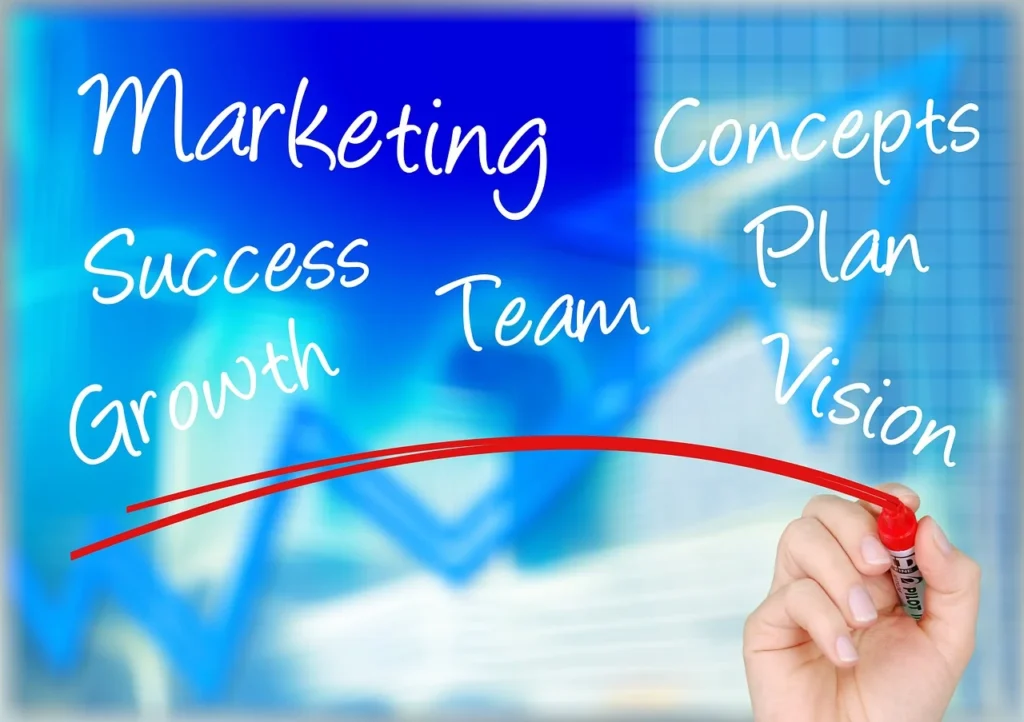Physical Address
304 North Cardinal St.
Dorchester Center, MA 02124
Physical Address
304 North Cardinal St.
Dorchester Center, MA 02124

AI in content marketing is not just a trend—it’s a revolution. It’s changing how brands create, share, and promote content. In the past, marketers spent hours writing blogs, planning strategies, and analyzing data manually. Today, AI tools are helping businesses work faster and smarter.
From writing blog posts to understanding customer behavior, AI is now a key part of modern content strategies. It makes content more personal, improves SEO, and saves time. As a result, companies can connect with their audience in better ways.
In this blog, we’ll explore 10 powerful ways AI in content marketing is creating positive change in 2025.
AI in content marketing refers to the use of artificial intelligence tools to plan, create, optimize, and distribute content. These tools use technologies like machine learning, natural language processing, and predictive analytics to help marketers work more efficiently.
Instead of guessing what content might work, AI can analyze data and suggest what your audience is most likely to engage with. It can generate blog outlines, suggest headlines, recommend the best posting times, and even rewrite content to suit different platforms.
Many popular tools—such as ChatGPT, Jasper, Grammarly, and Surfer SEO—are already being used to improve content quality and performance.
If you want a deeper look at how AI is reshaping digital marketing, this HubSpot guide on AI in marketing is a great resource.

AI in content marketing is revolutionizing how businesses create and distribute content. It’s not just about automation; it’s about smarter, faster, and more effective content strategies. Here is 10 powerful ways AI in content marketing is creating positive change in 2025:
AI is taking over repetitive tasks like writing blog drafts, social media posts, and product descriptions. Tools like GPT-4 and Jasper are helping marketers produce quality content faster. As a result, businesses can focus on strategy while AI handles content generation.
Personalization is key to engaging content. AI tools can analyze user behavior and preferences, helping marketers create highly personalized content. This makes it easier for brands to connect with their audience, increasing engagement and conversions.
AI and SEO go hand in hand. AI can suggest the best keywords, optimize meta descriptions, and even analyze the readability of content to improve its ranking. AI tools like Surfer SEO and Yoast SEO are streamlining SEO processes and helping content reach its target audience more effectively.
AI helps marketers analyze vast amounts of data to gain insights into what content works and what doesn’t. With these insights, businesses can refine their strategies and create more effective content that resonates with their audience.
I tools can automate the distribution of content across various platforms, ensuring the right content reaches the right audience at the right time. This helps businesses maintain consistent engagement across multiple channels.
AI-powered chatbots are enhancing customer service by providing real-time, automated responses. These chatbots help answer queries, recommend products, and engage users with personalized content, boosting customer satisfaction and loyalty. This is a key example of how AI in business service automation is reshaping the way companies interact with their customers.
AI is also improving visual content creation. From generating images to creating infographics and videos, AI tools help marketers produce eye-catching content quickly and affordably. This visual content can boost engagement on social media and other platforms.
AI makes it easier to repurpose content for different formats. For example, a single blog post can be transformed into a video, infographic, or social media post. This allows businesses to maximize the value of their content without reinventing the wheel.
How AI is changing content marketing includes reducing human error. AI-powered tools can correct grammar mistakes, ensure consistency in tone, and suggest improvements, making content more polished and professional.
AI uses predictive analytics to forecast trends and customer behavior, allowing businesses to plan content accordingly. By staying ahead of the curve, companies can create content that aligns with audience interests and drive better ROI.
This reflects how AI in business service automation is making customer interactions faster, smarter, and more efficient
The rise of AI in content marketing isn’t just a trend—it’s a game-changer. It helps brands work smarter, not harder. From idea generation to performance tracking, AI tools are speeding up every step of the content process.
For businesses aiming to grow, understanding how AI is changing content marketing is essential. AI helps marketers deliver more value to their audience by offering relevant, engaging, and personalized content. It also gives small businesses the power to compete with bigger brands by leveling the playing field.
Looking ahead, the future of content marketing with AI will be shaped by automation, smart insights, and seamless integration across platforms. AI won’t replace human creativity—it will support it, making it stronger and more focused.
Also, don’t overlook the strong link between AI and SEO. AI tools help you find the right keywords, optimize content for search engines, and reach your audience at the right time with the right message.
In short, AI is helping marketers do what they’ve always wanted: create content that truly connects.

Let’s look at how some well-known brands are using AI to improve their content marketing.
Netflix uses AI to study what people watch and how long they watch it. Based on this, it shows personalized recommendations. This keeps users engaged and coming back for more.
Sephora uses a chatbot that helps users choose the right makeup. It asks simple questions and gives product suggestions. This improves the shopping experience and boosts sales.
Coca-Cola uses AI to track online conversations. It finds out what people are saying about the brand. This helps the team create content that connects better with their audience.
The Washington Post has a tool called “Heliograf” that writes short news updates. It can quickly cover sports scores or election results. This allows the writers to focus on deeper stories.
HubSpot uses AI to help businesses create better marketing emails and blogs. It gives suggestions on headlines, keywords, and tone. This helps users create content that performs well online.
These examples show how AI in content marketing helps brands connect better with their audience, save time, and improve results
AI in content marketing has changed how brands create and share messages, but it also brings up important questions about fairness, originality, and human values. One key issue in the ethics of AI is bias. If the data used to train AI tools is unbalanced, the output may also be unfair. For example, an AI writing tool might promote certain topics more than others or favor one language style, which can affect how diverse audiences are reached.
Another challenge is plagiarism. AI tools often gather ideas from large amounts of online content. Without careful checks, they might reuse phrases or ideas too closely, leading to legal risks and damaging trust with readers. The ethics of AI are a serious concern that users must be aware of before relying on automation.
Relying too much on AI can also remove the human touch from content. While AI is great at speeding up tasks and suggesting improvements, it lacks the emotion and creativity that only people can bring. That’s why it’s important to use AI tools as helpers, not full replacements. Human review and input remain essential.
The ethics of AI also include questions about transparency. People should know when content has been created or helped by machines. Being honest with your audience builds trust and sets clear boundaries for how AI is used in content marketing.
In the end, AI should support human creativity, not replace it. As the tools become more powerful, the responsibility to use them wisely grows too. For more on the ethics of AI, check out this detailed article.
AI in content marketing offers numerous benefits. It helps brands create content faster and more efficiently, saving time on tasks like writing, editing, and content optimization. By using AI tools, companies can analyze data more easily and personalize their content to meet the needs of specific audiences. Additionally, AI in SEO allows businesses to optimize their websites and content for search engines, improving visibility and engagement.
However, the future of content marketing relies on blending the power of AI with human creativity. While AI can handle many repetitive tasks, it’s the human touch that brings originality, emotion, and deeper understanding of the audience. The key to success is using AI to enhance content creation, not replace the unique insights and creativity that humans provide. As AI and SEO continue to evolve, the best results will come from a smart partnership between technology and human talent.
[…] stories demonstrate the immense potential of AI in content creation. Whether it’s generating articles, personalized ads, or even marketing content, AI is helping […]
[…] fact, if you’re curious about the bigger picture, you might want to read how AI is changing content marketing, especially in areas like automation, personalization, and performance […]
hm806o